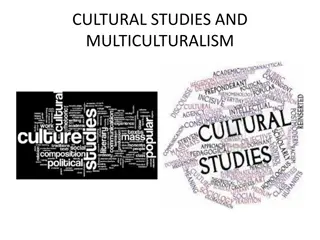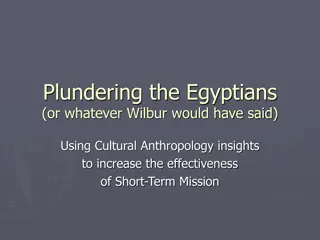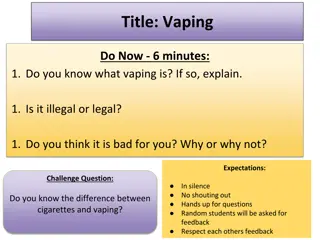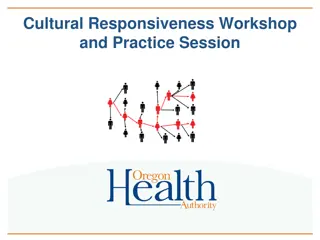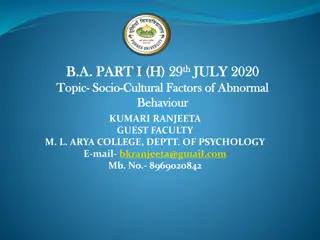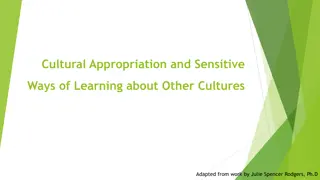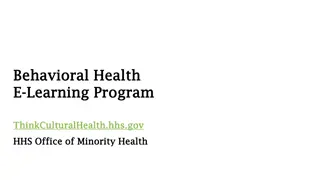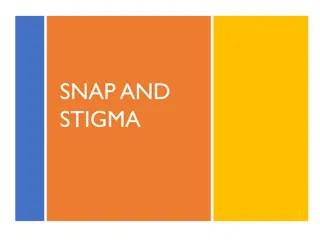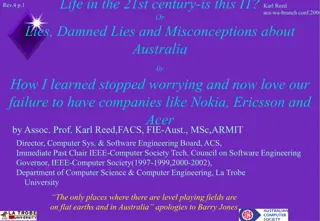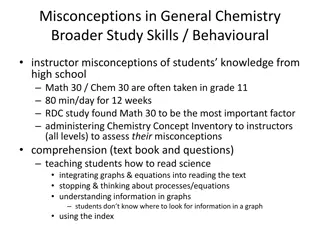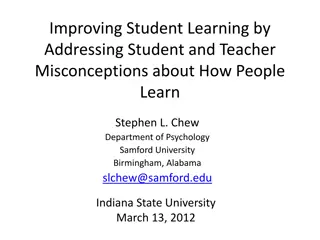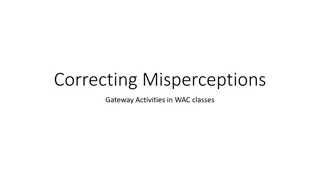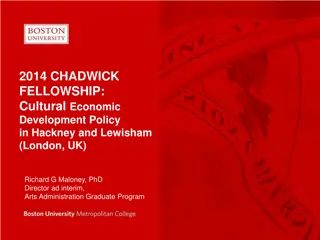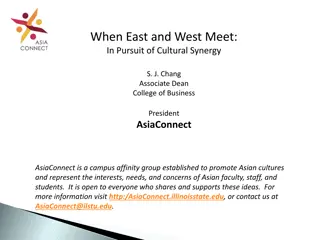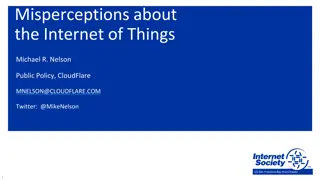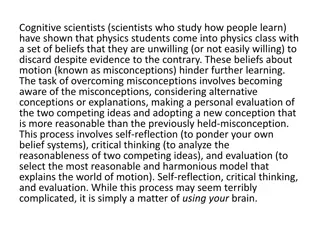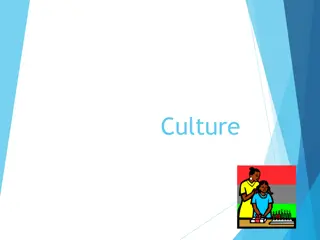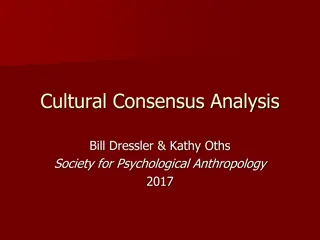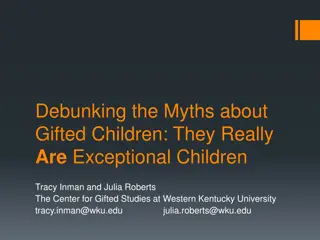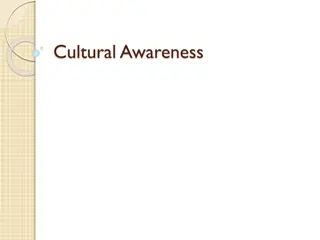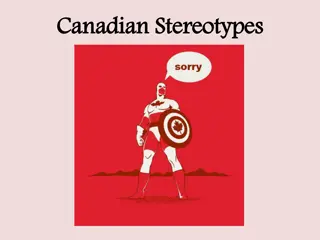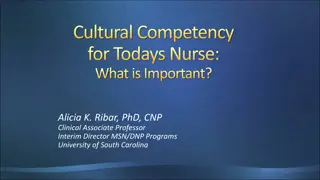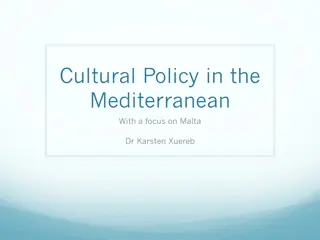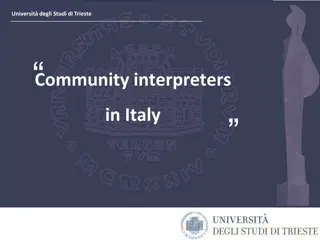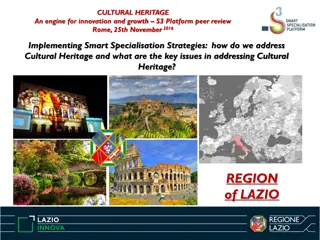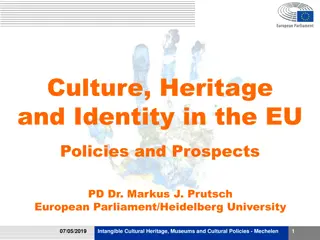5 Common Misconceptions About Health and Safety
Misinformation is everywhere! So we at Storage Equipment Experts feel like it\u2019s high time to do some health and safety myth busting. If there\u2019s one consistently popular \u2014 and usually inaccurate \u2014 news story, it\u2019s the one about health and safety \u201cgoing too far\u201d. Aft
3 views • 3 slides
Myth-Busting: Common Misconceptions About CPR
When it comes to CPR (Cardiopulmonary Resuscitation), many people are under the impression that it\u2019s only for medical professionals or that it\u2019s too complicated to learn. But these misconceptions can be a matter of life and death.\n\nFor more info visit: \/\/ \/courses.php
1 views • 5 slides
Understanding Feminism, Sexism, and Toxic Masculinity - A Reflection on Gender Equality
Explore the concepts of feminism, sexism, and toxic masculinity through activities and discussions, challenging misconceptions and promoting gender equality. Reflect on learning and origins of misconceptions to foster a more inclusive society.
0 views • 7 slides
Exploring Cultural Studies and Multiculturalism
Cultural studies is an interdisciplinary field that examines cultural differences while aiming to create a shared culture where diversity is respected. It challenges traditional views by studying all cultural productions and their societal contexts. Stuart Hall's work further delves into different p
0 views • 18 slides
Enhancing Short-Term Mission Effectiveness Through Cultural Anthropology Insights
Utilizing insights from cultural anthropology, this presentation delves into defining culture for short-term missions, viewing culture in successive levels, and key concepts such as cultural evolution and relativity. It explores the impact of culture on individuals and missions, emphasizing the impo
0 views • 16 slides
Understanding Vaping: Risks and Misconceptions
Vaping, the inhaling of vapor from electronic cigarettes, raises concerns due to unknown long-term effects and reports of serious lung damage. The difference between smoking and vaping lies in nicotine delivery methods. Misconceptions around vaping being healthy are debunked through discussions on i
1 views • 18 slides
Exploring Cultural Responsiveness Through Workshops & Practice Sessions
This content provides a comprehensive guide on cultural responsiveness through workshops and practice sessions. It covers topics like cultural sensitivity, biases identification, and ways to reduce implicit biases. Resources, videos, and insights on cultural knowledge and awareness are shared to pro
0 views • 19 slides
Critics and Defenders in Multiculturalism Debate
Critics of multiculturalism argue that its focus on cultural inequalities diverts attention from socio-economic issues, while defenders like Kymlicka advocate for balancing cultural recognition with equal rights. Feminist critics raise concerns about cultural support for individual self-respect, par
0 views • 9 slides
Understanding Socio-Cultural Factors of Abnormal Behavior in Psychology
Exploring the impact of socio-cultural factors on abnormal behavior, this article delves into the influence of societal pressures, cultural norms, and economic status on mental health. The socio-cultural model emphasizes how societal criteria shape perceptions of abnormality, highlighting the role o
0 views • 7 slides
Understanding Cultural Appropriation and Respectful Cultural Learning
This content delves into the concept of cultural appropriation, offering definitions, examples, and ways to avoid it. It emphasizes the importance of cultural appreciation and outlines the differences between appropriation and appreciation, highlighting the power dynamics involved. Readers gain insi
1 views • 16 slides
Enhancing Cultural Competency in Behavioral Health Professionals
This e-learning program, developed by the HHS Office of Minority Health, focuses on improving cultural competence for behavioral health providers. It covers topics such as the connection between culture and behavioral health, the impact of cultural identity on client interactions, and strategies to
0 views • 9 slides
Comprehensive Guide to Attic Ventilation for Weatherization Energy Auditors
Explore the purpose, principles, and misconceptions surrounding attic ventilation in single-family homes as part of a weatherization assistance program. Learn about common misconceptions, post-weatherization moisture problems, and passive attic venting techniques using informative visuals provided b
0 views • 23 slides
Understanding Nurse Triage: Common Misconceptions and Legal Issues
Explore the world of nurse triage with insights on misconceptions, legal considerations, and the crucial role of teletriage nurses. Learn about risk mitigation, the nurse's scope of practice, and the importance of communication in teletriage encounters.
0 views • 30 slides
Understanding Operations Research: Misconceptions and Real-World Applications
Operations Research (O.R.) is often misunderstood as just a collection of mathematical tools, but it is actually a systematic approach to problem-solving using analytical techniques. This article addresses common misconceptions about O.R. and highlights its broad scope in tackling real-world issues.
0 views • 12 slides
Addressing Stigma and Breaking Down Misconceptions about SNAP
Addressing stigma surrounding SNAP is crucial to ensure all eligible students can access this valuable resource. Stereotypes and misinformation often prevent individuals from utilizing SNAP benefits. By promoting positive messaging, correcting misinformation, and sharing personal stories, we can cha
3 views • 11 slides
Louisiana Cultural Districts: Engaging Communities in Cultural Development
The Louisiana Cultural Districts program, under the Cultural Economy Initiative, aims to revitalize local communities by creating hubs of cultural activity. By building on cultural resources and promoting art and culture, the program benefits from increased occupancy, commerce, and community identit
2 views • 18 slides
Life in the 21st Century: IT, Lies, and Misconceptions about Australia
Delve into Assoc. Prof. Karl Reed's insightful take on the state of life in the 21st century, focusing on the role of IT, misconceptions about Australia, and the failures in developing companies like Nokia and Acer. Explore the impact of technology on society, economy, and workforce, reflecting on t
3 views • 33 slides
Overcoming Misconceptions in Chemistry Education
Addressing misconceptions in general chemistry education, focusing on student knowledge from high school Math and Chemistry courses. Emphasis on student motivation, learning strategies, and common misconceptions in understanding scientific concepts. Strategies for enhancing comprehension, applicatio
0 views • 12 slides
Addressing Misconceptions in Teaching and Learning
Explore how misconceptions about learning impact teaching effectiveness and student performance. Learn how cognitive research can enhance teaching methods. Discover the importance of accurate knowledge for effective teaching. Identify common beliefs that hinder teaching effectiveness and student lea
0 views • 40 slides
Misconceptions Surrounding Wahhabism and Muhammad ibn Abdul Wahhab in the Malay Muslim Community
The article delves into the misconceptions and conflicts between Wahhabism and Malay Sunni beliefs, highlighting the lack of understanding about the origins of Wahhabism. It explores the differences between Wahhabis and Sunnis, shedding light on the life of Muhammad ibn Abdul Wahhab and his teaching
0 views • 12 slides
Addressing Misconceptions in Writing Across the Curriculum (WAC) Classes
WAC approaches in geology classes aim to correct persistent misconceptions through gateway activities, focusing on topics like CFCs and ozone depletion. By engaging students in discussions and written responses, educators correct prior misunderstandings to enhance learning outcomes and clarify disti
0 views • 6 slides
Cultural Economic Development Policy in Hackney and Lewisham: A Comparative Study
Building on previous research in Massachusetts, this project focuses on examining local government initiatives in cultural economic development in London boroughs of Lewisham and Hackney. The study explores the role of government in enhancing the cultural and creative industries, aiming to contribut
0 views • 7 slides
Alleviating Misconceptions About Energy: Wildlife Impacts, Bird Mortality, Human Health, and Shadow Flicker
These slides address common misconceptions about energy, focusing on wildlife impacts, bird mortality from wind turbines, human health effects, and shadow flicker concerns. They highlight strategies to reduce wildlife impacts, comparisons of bird mortality with other structures, lack of evidence for
0 views • 9 slides
Bridging East and West: Cultivating Cultural Understanding
Exploring the complexities and nuances of cultural differences between the East and the West, this article delves into the challenges of cultural synergy and the importance of fostering multicultural understanding. Highlighting the need for effective communication and empathy across cultures, it pre
0 views • 18 slides
Debunking Misconceptions about the Internet of Things
Delve into the world of the Internet of Things (IoT) with Michael R. Nelson as he challenges myths, explores key policy issues, and identifies necessary actions in the San Francisco Bay Area. From debunking common misconceptions to outlining crucial policies and decision-making landscapes, this insi
0 views • 10 slides
Understanding Physics Misconceptions and Newton's Laws
Cognitive scientists have shown that physics students often hold misconceptions about motion that hinder their learning. Overcoming these misconceptions involves self-reflection, critical thinking, and evaluation. Newton's laws of motion play a significant role in understanding the concepts. Questio
0 views • 56 slides
Understanding Cultural Diversity in Healthcare
The content explores the significance of cultural diversity in healthcare, emphasizing the increasing diversity of the population in the United States and the importance of cultural competence in nursing. It delves into cultural concepts, transcultural nursing, cultural context of health and caring,
0 views • 13 slides
Understanding Cultural Consensus Analysis in Psychological Anthropology
Explore the essence of Cultural Consensus Analysis (CCA) as a significant aspect of psychological anthropology. Through ethnographic work and structured techniques, CCA helps verify shared knowledge within cultural domains and enhance the comprehension of cultural models. The model and steps involve
0 views • 64 slides
Debunking Myths About Gifted Children
Debunking the common myths surrounding gifted children, this presentation challenges misconceptions and emphasizes the importance of effort, growth mindset, and individualized support in nurturing their talents. It showcases insights from experts in the field and addresses key misconceptions about g
0 views • 26 slides
Understanding Cultural Awareness and Diversity in the United States
Explore the significance of cultural awareness, including definitions of culture, cultural groups, and subcultures. Learn about the diversity in the United States based on national origins, beliefs, customs, and shared characteristics. Discover how to interact positively with individuals from differ
0 views • 37 slides
Canadian Stereotypes: Debunking Common Misconceptions
Explore and debunk various Canadian stereotypes in this collection of images and references, from the misconceptions of being overly polite and obsessed with hockey to myths about lumberjacks, pronunciation, wildlife, and cultural affiliations with America. Delve into the humor and reality behind th
0 views • 21 slides
Development and Application of Cultural Policy Typology for Arts and Culture
This research focuses on presenting a cultural policy typology based on goal variation and examining its application in a U.S. state art/cultural agency, specifically the Massachusetts Cultural Council. The study delves into the policy goals of the council and highlights the need for a specialized c
0 views • 16 slides
Understanding Physics Misconceptions and Newton's Laws
Cognitive scientists have identified common misconceptions physics students hold about motion, hindering their learning process. Overcoming these misconceptions involves self-reflection, critical thinking, and evaluation. Concepts such as force, motion, and Newton's Laws are explored to help student
0 views • 51 slides
Understanding Cultural Competency in Nursing Today
Explore the importance of cultural competency for nurses today, encompassing the definition of culture, cultural competence, Leininger's Culture Care Theory, and the significance of cultural understanding in nursing. The presentation delves into the role of nurses in promoting health across diverse
0 views • 14 slides
Exploring Cultural Policy in the Mediterranean with a Focus on Malta
Delve into the intricate web of cultural relations in the Mediterranean region, centered around Malta. From historical and political insights to postcolonial influences and the role of cultural policy, this exploration sheds light on the complexities and nuances shaping the cultural landscape. Disco
0 views • 23 slides
Community Interpreting and Cultural Mediation in Italy: Insights from the University of Trieste
University of Trieste sheds light on the roles and qualifications of cultural mediators in Italy. The profession, categorized into linguistic and cultural mediation, plays a vital role in facilitating relationships between authorities and foreign residents, promoting integration, and dismantling lan
0 views • 9 slides
Understanding the Art Bonus Tax Credit for Cultural Support
The Art Bonus tax credit in Italy encourages individuals and businesses to support cultural heritage through charitable donations, providing a tax credit of 65%. This initiative aims to not only fund cultural institutions but also strengthen the bond between citizens and their heritage, driving soci
0 views • 10 slides
Understanding Cultural Diversity in Nursing Education
Explore essential concepts in transcultural nursing, including Leininger's Transcultural Nursing Theory and other models. Learn about cross-cultural nursing, cultural competence, diversity in nursing practice, and key terms like cultural imposition and acculturation. Enhance your cultural competence
0 views • 32 slides
Cultural Heritage as an Engine for Innovation and Growth in the Region of Lazio
Discussing the significance of cultural heritage in driving innovation and growth in the Region of Lazio, this report highlights the key elements and issues related to smart specialization strategies. It emphasizes the economic impact of tourism and cultural heritage in terms of enterprises, value a
0 views • 19 slides
Cultural Heritage and Identity in EU Policies
Delve into the significance of cultural heritage and identity in European Union policies through a presentation discussing the evolution of heritage, European identity concepts, and EU heritage policies since the 1970s. Explore the intertwined nature of cultural heritage with European integration an
0 views • 11 slides



